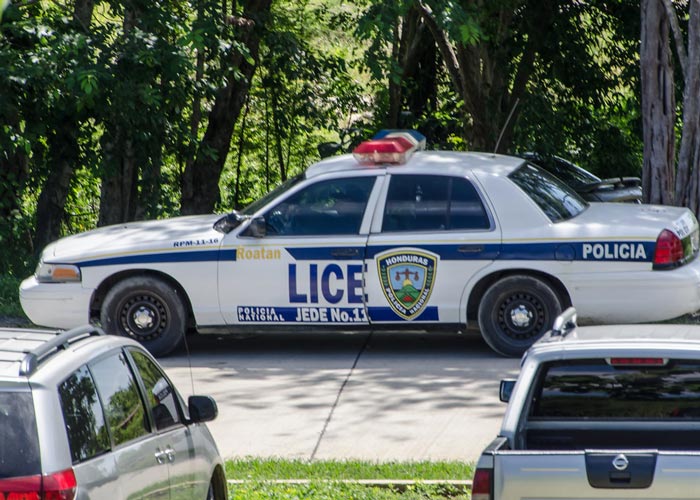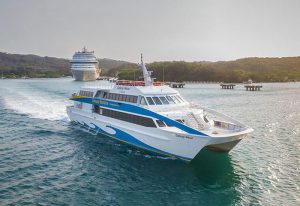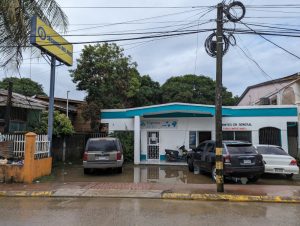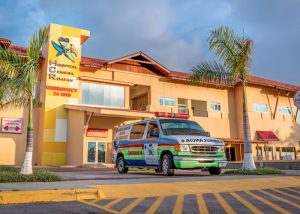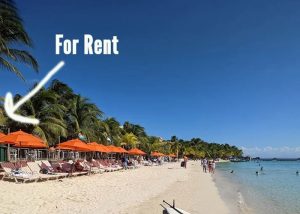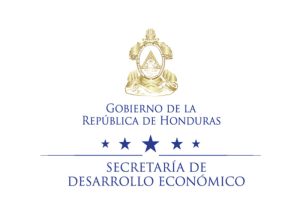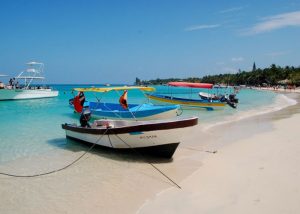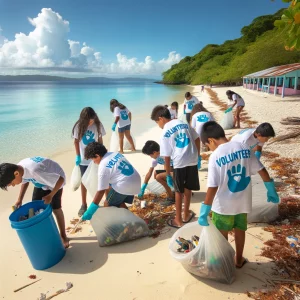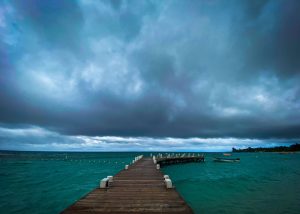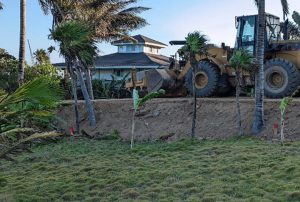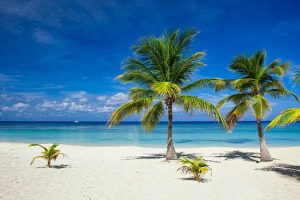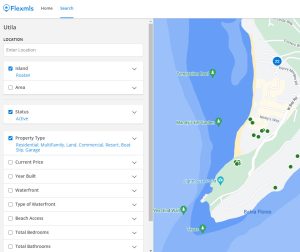Police and Crime on Roatan
“One moment of patience may ward off a great disaster. One moment of impatience may ruin a whole life.”
Chinese Proverb
Security on Roatan
This chapter is a minefield of diverse views on crime, as each of us forms our perspectives based on personal experiences. If you’ve ever been a victim of a violent crime anywhere in the world, your perception of that specific place will undoubtedly shift. This phenomenon isn’t exclusive to Honduras; it’s a universal concept. Conversely, if you’ve never encountered such incidents, you might consider a place perfectly safe. This cognitive bias is known as survivor bias. It’s a logical error, focusing on the people, situations, or events we know about or have experienced, while neglecting those we remain oblivious to due to a lack of knowledge or personal experience.
Allow me to provide a simple illustration. If you were to inquire about walking from West Bay beach to West End along the shore, I’d advise against it, mentioning previous muggings in the area. The dense jungle provides cover for perpetrators, making it challenging to apprehend them. However, another person might truthfully claim to have walked the same route countless times without incident. Both perspectives are valid. Yet, individuals with survivor bias tend to believe that nothing can happen since nothing has happened to them, nor have there been any reported incidents in several years in that area.
If a tourist listens to the latter person and remains incident-free during their two-week vacation, they might leave with the belief that my cautionary advice was unwarranted. They may even enthusiastically assert that the stretch is safe, reinforcing the bias. In reality, it’s not entirely safe, at least not yet. I share this anecdote to illustrate that a similar incident occurred less than a year ago. I even received unpleasant messages from some new hotel owners along that stretch.
However, having lived here for 17 years, I am one of the administrators of Roatan Crime Watch group on Facebook. It is the largest private group dedicated to assisting the community in solving and preventing crime. Membership is exclusive to residents. The group serves as a platform to address and tackle known issues, exert pressure on the police and government where necessary, and share knowledge to enhance community safety.
Regrettably, I can confidently affirm that robberies do occur on that stretch of beach. In fact, one happened just two days after I was harassed by certain individuals. No, it wasn’t my way of winning an argument by resorting to theft. It was a rare occurrence, as there have been few such incidents. If you’ve had your camera, wallet, or other belongings taken, your perspective vastly differs from those who confidently declare the area safe.
My intent isn’t to frighten people, but to make them aware of potential risks. I urge them to exercise caution when venturing into unfamiliar places or following recommendations blindly. It’s essential to think before walking down a dimly lit street at night, rather than waiting for a taxi, or to consider the security of an ATM location before withdrawing a large sum of cash. Common sense goes a long way. I can’t predict the future; I can only draw from past experiences. Crime on this island tends to follow cycles due to limited hiding spots and extensive surveillance, so incidents eventually occur.
I acknowledge that this article may generate controversy on the island. However, I provide the same candid advice to all my clients face-to-face, even when it may not be in my best interest. I’m frank and sometimes brutally honest because I believe in offering sincere and well-considered opinions when asked.
Since I used that particular beach section as an example, I anticipate backlash from the proprietors and business owners along that stretch, and rightfully so. I’m not discouraging anyone from visiting; there are numerous bars and restaurants with excellent music and food. I, too, will be spending time there. The stretch is evolving, with more hotels and private security services collaborating to enhance safety. It’s becoming progressively secure. Nevertheless, I’ll adhere to the same cautious approach I advocate for you.
Stay safe
In Honduras, my cardinal rule is to keep a low profile and avoid getting involved. Think of it as being in a big city full of strangers. For instance, even if a friendly lady shared stories about her children while trying to sell you illegal conch shells on the beach, it doesn’t guarantee the safety of your phone if you leave it unattended on your seat when you go into the sea. Neglecting small and easily concealed valuables, which may represent several months’ worth of income for those living on the poverty line, is a recipe for trouble. I’m not blaming the victim; it’s simply a matter of common sense. Avoid flaunting expensive items, especially after dark, and refrain from associating with unfamiliar individuals or venturing into unfamiliar areas. Stick to tourist zones and avoid confrontational behavior.
In general, when people ask me about crime, I advise them to act and think carefully, taking all reasonable precautions. With these measures in place, they can relax, enjoy themselves, and have a good time.
You’ll often spot officers patrolling the beaches of West Bay and West End, especially when they are crowded, such as when cruise ships arrive. They ensure the safety of all of us, which is reassuring.
There are specific areas on this island where people don’t even lock their doors, and I reside in one of them. These areas, essentially enclaves, offer exceptional safety. Most of West Bay, Pristine Bay, Keyhole Bay, Parrot Tree, and other developments with private police security are remarkably safe. I particularly appreciate the security provided by Bull Dog securityin the Keyhole and West Bay areas. I can’t recommend them enough as a private security firm. If I call them, they usually arrive within 10 minutes. When considering property purchases, it’s crucial to be aware of the location and surroundings. I’ve refused to show houses in the past due to the area’s history. If you opt for a remote jungle location with no neighbors, you’ll need to have dogs or a live-in guard since the house can’t be left unattended. As the local saying goes, “The jungle has eyes.”
Safety doesn’t only concern serious crimes like robbery. How secure do you feel in your day-to-day life, such as going to the store, hanging out with friends on the beach, or driving around the island? Personally, I feel extremely safe. My three children grew up here, from kindergarten to university, and I had no reservations about them hitching rides or roaming the island with friends. They would often hop into the back of a stranger’s truck to visit friends or local beaches. In my everyday routine, the worst that might happen is someone approaching me to ask for money. The sense of community here is strong, and assistance is readily available. As my daughter mentioned in her commencement speech, “What I love most about the island is also what I hate most. I know that wherever I am, if I have a problem, I can ask for help from someone nearby, and I will receive it. I also know that wherever I am on the island, if I do something wrong, my father will know about it before I get home.”
Of course, there is crime here, including serious incidents. Crime exists everywhere, and now you’re considering living in a third-world country where minimum wages are only a few hundred dollars a month. So, once again, to emphasize the importance, even if it sounds repetitive, that iPhone 15 may appear tempting, but if you leave it unattended on the bar, it will likely not be there when you return. Therefore, remain vigilant and consider your surroundings just as you would in any place with unfamiliar people.
Roatan is not the mainland
Let’s clarify something outright: Roatan is not the mainland, and I have resided there. The things you read and hear about in cities like San Pedro Sula and Tegucigalpa do not hold true here. Roatan is an English-speaking island with very few roads for criminals to operate on, and everyone is well-acquainted with each other’s affairs. If you venture to the mainland for leisure or business, you will immediately notice the significant contrast in security.
During my 17 years here, I have never personally experienced or encountered a serious crime or incident, but I am certainly aware of many such cases. However, they are rarely random and often have underlying causes, including drugs, land disputes, wounded pride (remember the warning about aggression), and strained relationships, among others. This is not a first-world environment, and grievances, debts, and disputes are often resolved personally.
There are two prevalent security concerns among people living here: the disorganization and inaction of the police. In emergencies, if you call the police for assistance, they may take a day or two to respond. Consequently, the community has established WhatsApp groups where we have learned to help ourselves. Secondly, it often appears that the legal system favors criminals. Public prosecutors and judges tend to release criminals immediately upon capture. Diligent security companies like Bulldog Security diligently pursue perpetrators, file all necessary statements (denuncias), and then witness the court releasing the criminal they apprehended “in the act,” allowing them to return to the streets and potentially commit the same offense again. Only persistent pressure leads to the incarceration of criminals, a task that companies like Bulldog actually undertake on your behalf.
Yes, it is safe to raise a family!
This may appear to paint a somber picture, but I want to emphasize that I successfully raised my three children as a single parent here from the age of 4 until they left for university, and I would make the same choice again. Having lived in New York, San Francisco, and Sydney, I encountered more crime in those places than I have here. To be honest, I feel safer here in Roatan than I did while growing up in England.
Once you are here, you’ll find several Facebook and WhatsApp groups where we report and share crime details to assist in locating criminals, recovering lost property, and keeping each other informed about any significant developments—essentially, the modern-day equivalent of Neighborhood Watch.
In summary, I genuinely feel safe and have a deep affection for this place. Would I recommend living here to friends and family? I have done so, and they have embraced the idea! Just exercise common sense, and you can relax and fully enjoy your time here.
The police
Honduras has various types of police services, and I will provide a brief overview of each service and its responsibilities. You’ll typically encounter them in two main situations here.
Roadblocks: One is at roadblocks, where you’ll come across police officers dressed in military fatigues, comprising a mix of Military Public Order Police (PMOP) and National Police personnel, identifiable by their blue shirts. Roadblocks are quite common, especially during holidays, at night when leaving nightclub areas, or when important individuals visit the island. Interestingly, they are less frequent when it rains. (Yes, more sarcasm there.) They stop vehicles to check your identification and verify if the vehicle’s paperwork matches the license plates. Always be polite to the police, and some people even carry cans of soda or water to offer them as a gesture of goodwill. Is it bribery? Not in my view. They are often underpaid, and if you can brighten their day, it’s a positive thing. Communication might be challenging because many of them do not speak English as they are rotated onto the island from the mainland. So, if you get pulled over, help them out by having your driver’s license and car registration ready for inspection. Nod, smile, and use “Turista” while attempting some Spanish. Your imperfect accent might even bring a smile to their faces. Typically, they’ll wave you through quickly. Occasionally, they may conduct further checks. Do not lose your temper or become agitated. Otherwise, a 2-minute roadblock stop could turn into a 2-hour wait while they investigate something. They have the authority to significantly disrupt your day, so charm goes a long way.
This is a good time to mention some peculiar rules in Honduras. It is illegal not to carry identification, and any ID will suffice, but carrying your passport is not advisable. It’s best to keep it in a secure place and carry color copies instead. Carrying someone else’s ID is also extremely illegal. When driving, you must wear a t-shirt or top, fasten your seat belts in both the front and back seats, and it is illegal to smoke while driving or inside a covered bar. If you’re riding a scooter, you must wear a helmet. Drinking and driving are prohibited, and in the event of a crash, you should not move any vehicles until the police arrive. Moreover, if you’re involved in a collision, you, as a foreigner, may be presumed at fault, although this is not a written law.
Patrolling Tourist Areas: The other situation where you’ll encounter police is while they are patrolling tourist areas and beaches. These are typically municipal police responsible for enforcing local regulations, and sometimes they even enforce no-parking zones by booting cars, but not always.
City Police – Municipality

These officers wear white shirts and black pants, often featuring a red line running down the side of their pants as part of their uniforms. Municipal police are responsible for enforcing both state law and local ordinances, as well as maintaining order in the community.
You’ll frequently encounter these officers at the beaches of West Bay and West End, especially when the beaches are crowded, such as when cruise ships arrive. They walk around, diligently ensuring the safety of everyone. Yay!
National Police

The Honduran National Police wear blue uniforms, consisting of sky blue shirts and navy-blue pants. These officers are responsible for handling crimes on the island, such as robbery and assault. However, like many government services in Honduras, they face significant underfunding issues. Typically, they operate in urban areas, but in Roatan, they also respond to serious crimes.
It’s worth noting that officers often lack vehicles and fuel to respond promptly to calls for assistance. Consequently, the police may take hours to arrive at the scene of a violent crime, or in some cases, they may not respond at all. This situation allows criminals to operate with a high degree of impunity. On several occasions, I have known people who had to buy gas for officers or provide them with a ride to assist in catching criminals.
The National Police have also been involved in training the Municipal Police on Roatan, establishing a strategic alliance with the municipal mayor’s office to create a more effective security environment on the island.
Military Public Order Police (PMOP)
These officers typically wear green camouflage uniforms. You’ll often encounter them during roadblocks on the island. They regularly set up checkpoints to review documentation, such as driver’s licenses and vehicle registration. They work alongside the National Police.
The establishment of the Military Police of Public Order, commonly known as PMOP, followed a law that described the measure as temporary (Decreto 168-2013). Presently, this body serves as the policing branch of the Armed Forces, with the objective of “maintaining and preserving public order, as well as assisting citizens in safeguarding the safety of individuals and property in cooperation with the National Police.”
The Cobras and the TIGRES
The special militarized police unit, known as TIGRES (Special Comprehensive Governmental Security Response Unit), was established in 2013 under Decree 103-2013. Trained by the US Green Berets, their primary responsibility is to enhance the state’s institutional efforts in combating insecurity. While this unit is a part of the country’s police force, its officers wear camouflage uniforms, carry long-range firearms, and possess specialized communications equipment.
Civil society organizations report that both TIGRES and PMOP perform hybrid security duties, including patrolling streets and highways, maintaining order during public protests, and safeguarding mining and hydroelectric companies in cases of conflicts with local communities. When these units are called in, it’s advisable to stay clear and avoid any confrontations with them, as they are tasked with maintaining public order.
Denuncias – What to do if you are a victim of a crime
If you become a victim of a crime, even if you believe there’s little hope of apprehending the criminal or recovering your belongings, we strongly encourage you to report it. The government tracks crime primarily through the filing of denuncias (complaints/statements). So, if you don’t file one, it’s essentially as if the incident didn’t occur. The government allocates funding for the police and other related services based on these reports, making it vital for the community.
However, you’ll need to report the crime in person at the office in French Harbor. Since the staff there may not speak English, it’s crucial to have someone who can assist with Spanish if you don’t speak the language. I’ve witnessed individuals with no knowledge of Spanish being turned away at the door.
I’ve had to report several crimes myself, including the loss of my ID, which also counts as one. Fortunately, my Spanish skills have improved over the years, making the process relatively smooth. However, the first time I filed a report was many years ago when I spoke no Spanish. During that encounter, the officer left for lunch halfway through filling out the form, and I sat there for an hour not knowing what was happening. Nonetheless, as I always tell people, remain polite, even in the face of rudeness. If you want to know how a bureaucrat can make your life difficult, just disregard my advice, and you’ll eventually learn. “Karens” don’t exist here, as they would likely starve while waiting in some waiting room.
If you’re reporting stolen items, having photos, serial numbers, receipts, and any relevant documentation is essential. Nowadays, it’s a good practice to keep copies of every serial number for items you travel with, including your passport and other documentation, stored as photos in the cloud.
If you can’t find a translator (try asking community members for help), you can write out your statement in English using short, clear sentences and then use Google Translate to translate it. Make sure you have Google Translate installed and working on your phone. You might find some of these words and phrases helpful.
For additional assistance, the Language Loft of Roatan offers a class on filing denuncias as part of their language courses, and I highly recommend them. The Language Loft of Roatan
Nombre: First name
Primer Apellido: Last Name
Segundo Apellido: Spanish culture has two last names, the mother and father’s surname.
Estado Civil: Your marital status (Soltera, casada, viuda – Single, married, widowed)
Nacionalidad: Your nationality (Estados Unidos – United States, Británico – British, Canadiense – Canadian, etc.)
País de Residencia: Country of residence. See above.
Fecha de Nacimiento: Date of birth. Remember, they use the day/month/year format here.
Common Phrases related to reporting a crime:
- hubo: there was, there were (preterit tense of hay – there was, there were)
- un robo: a robbery
- la delincuencia: crime (as a general concept)
- la comisaría: the police station
- la policía: the police
- robar: to steal
- hurtos: thefts
- entrar: to enter
- romper la puerta: to break the door
- perder: to lose
- llevar cosas: to take things away
- ¿Qué pasó?: What happened?
- ¿Qué sucedió?: What took place?
- el pasaporte: the passport
- el ladrón: the thief
- el delincuente: the delinquent, criminal
- cartera: wallet
- carterista: pick-pocket
- engañar: to fool
- daños: damages, hurts
- suceder: to occur, to happen
- poner una denuncia: to make a police report
- reportar el crimen: to report a crime
- denunciar: to accuse, report
- darse cuenta: to realize, find out
- reportar: to report
- acusar a alguien: to accuse someone
- hacer daño: to cause damage
- aprovechar de alguien: to take advantage of someone
- pedir ayuda: to request/ask for help
- escribir un reportaje: to write a report
- recuperar: to recover, to get something back
- darse cuenta: to realize
